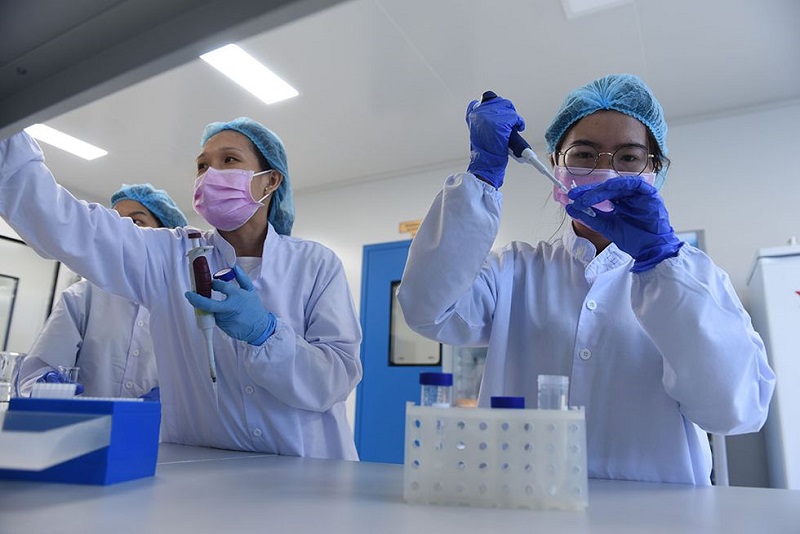Vietnam moves up in int’l vaccine regulation ranking
Vietnam was certified to have a fully-equipped national regulatory system for vaccine regulation in 2015.
The National Regulatory Authority (NRA) of Vietnam moves one level in the World Health Organization (WHO)’s rating scale for the safety and efficacy of vaccines.
| Vaccine production at Nanogen Pharmaceutical Biotechnology JSC (Nanogen). Photo: Nanogen |
With Maturity Level 3 that presents a stable, well-functioning and integrated regulatory system in the four-level system, Vietnam is listed among 50 out of 194 countries obtaining the level 3 and 4.
NRAs are national regulatory agencies responsible for ensuring that products released for public distribution (normally pharmaceuticals and biological products, such as vaccines) are evaluated properly and meet international standards of quality and safety.
WHO uses the Global Benchmarking Tool (GBT) to objectively evaluate regulatory systems with an aim to assure the quality, safety, and efficacy of medical products.
WHO began assessing regulatory system in 1997 that uses a set of indicators designed to evaluate the regulatory program for vaccines.
In 2015, Vietnam had a fully-equipped national regulatory system. It means that Vietnam’s NRA is compliant in all areas required to provide regulatory oversight of vaccines: overall system framework; marketing authorization and licensing; post-marketing surveillance, including for adverse events following immunization; lot release; laboratory access; regulatory inspections of manufacturing sites and distribution channels; and authorization and monitoring of clinical trials.
With the certificate, vaccines used by the national immunization program are certified safe and effective. All vaccines under Vietnam’s national Expanded Program on Immunization (EPI) are free of charge, without shortage of supply, available at commune health centers across Vietnam, according to WHO Vietnam.
With a regulatory system for vaccines documented to comply with international standards, vaccine manufacturers in Vietnam are now eligible to apply for WHO prequalification of specific products.
So far, Vietnam has produced 11 kinds of vaccines against 11 diseases in the EPI, namely TB, diphtheria, pertussis, tetanus, hepatitis B, Japanese encephalitis, cholera, typhoid, measles, rubella, and polio. It has also made different kinds of vaccines against seasonal flu, H5N1, and Rotavirus.












